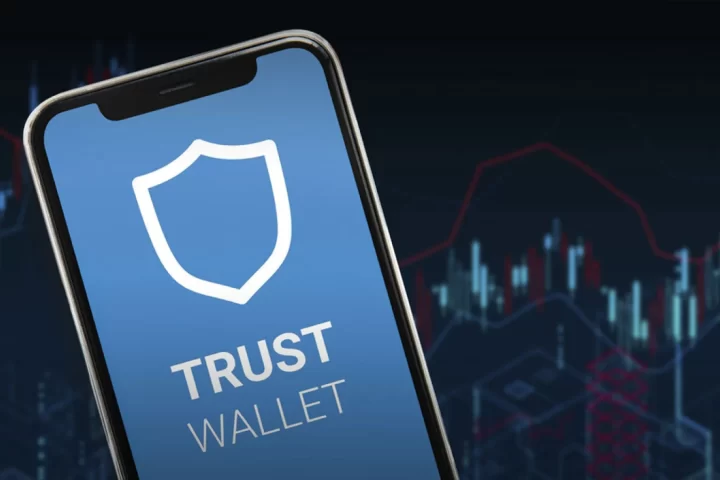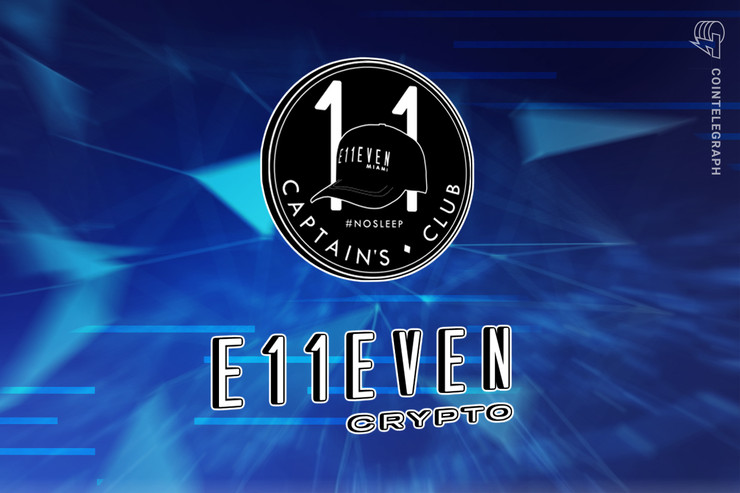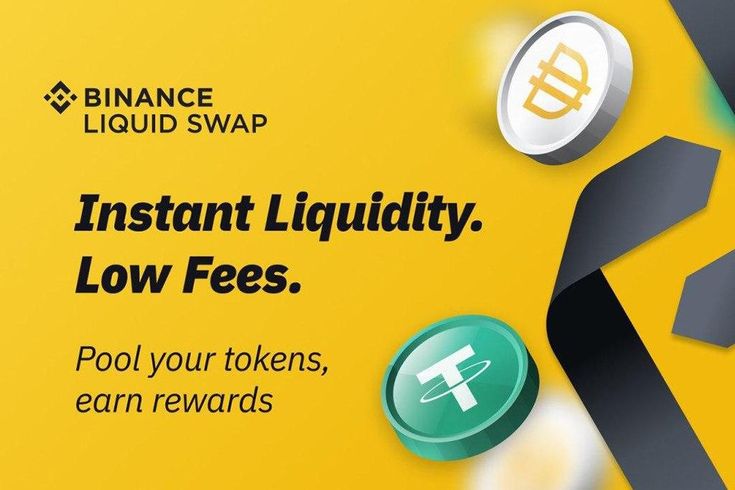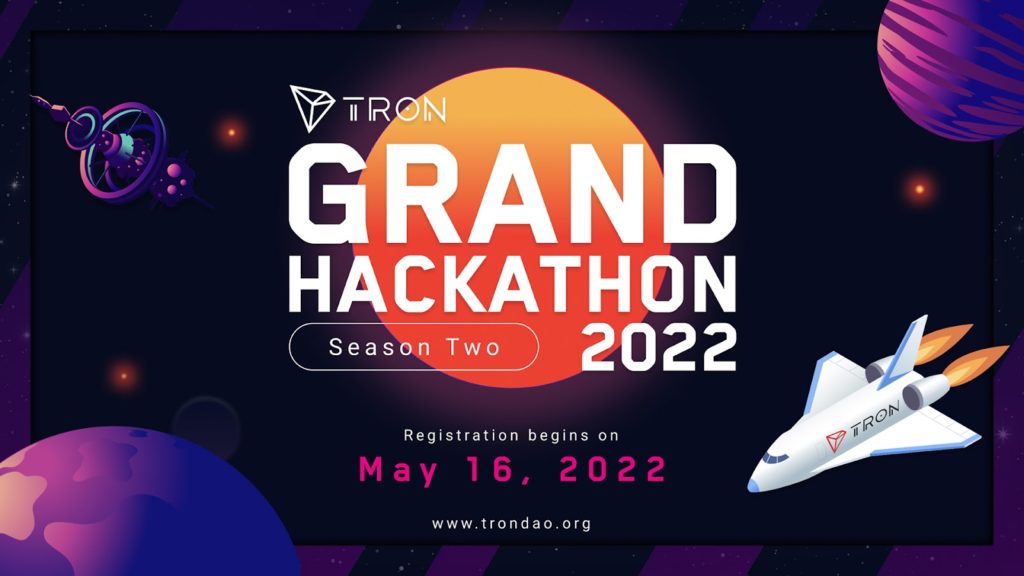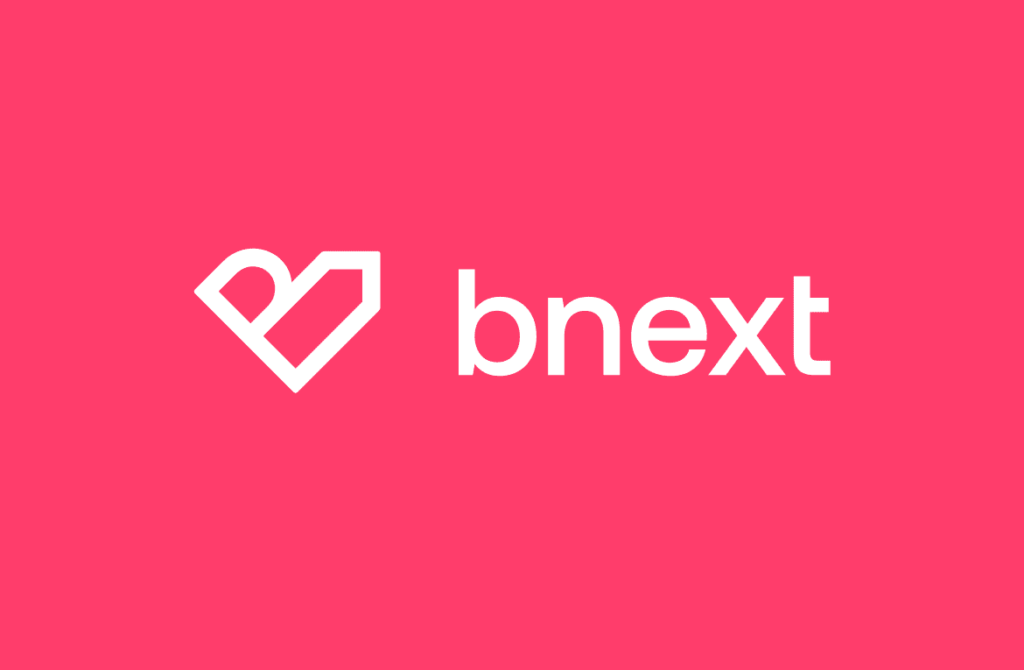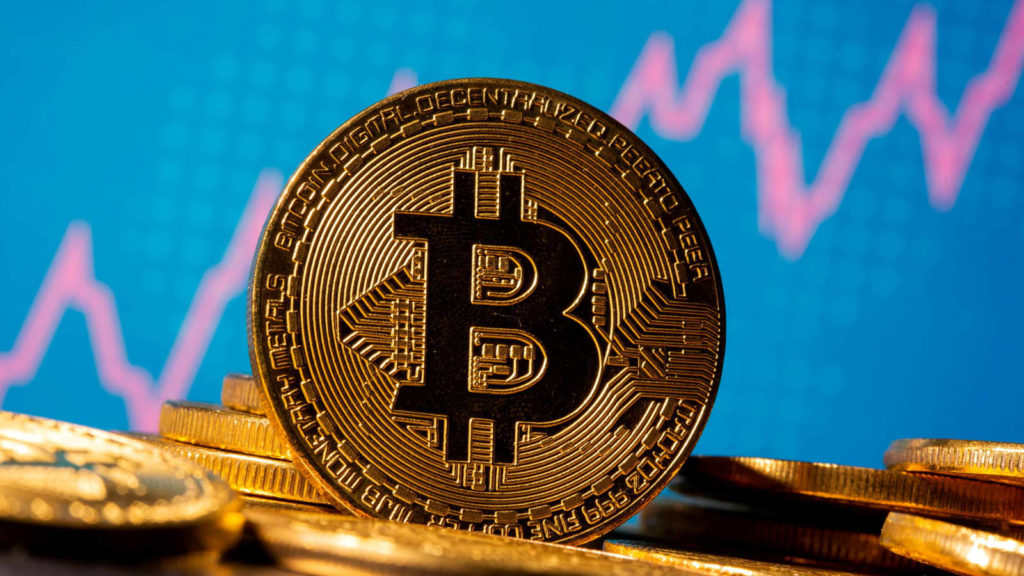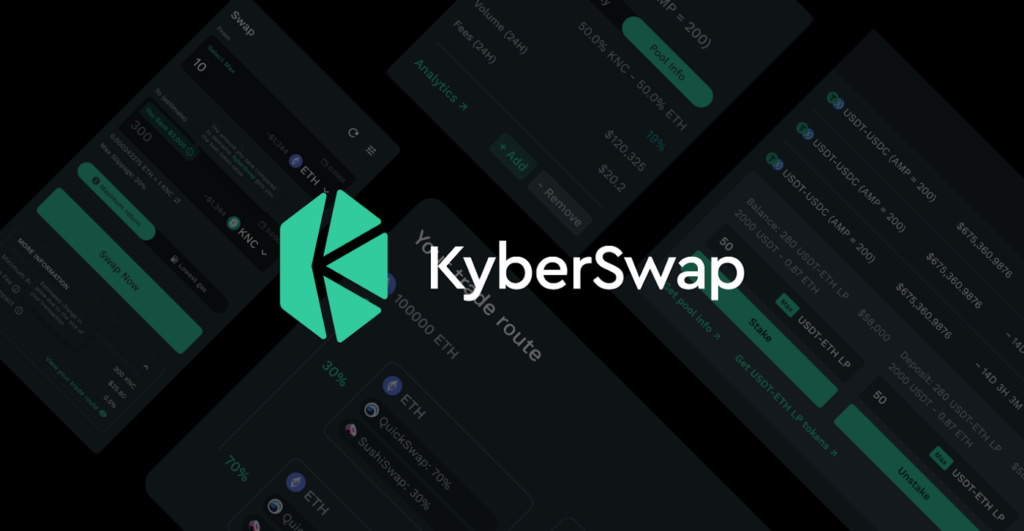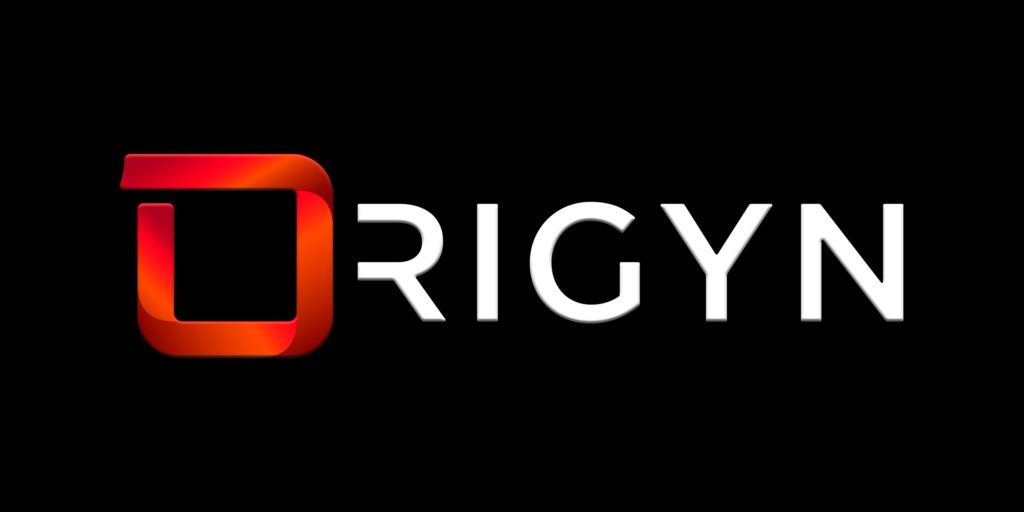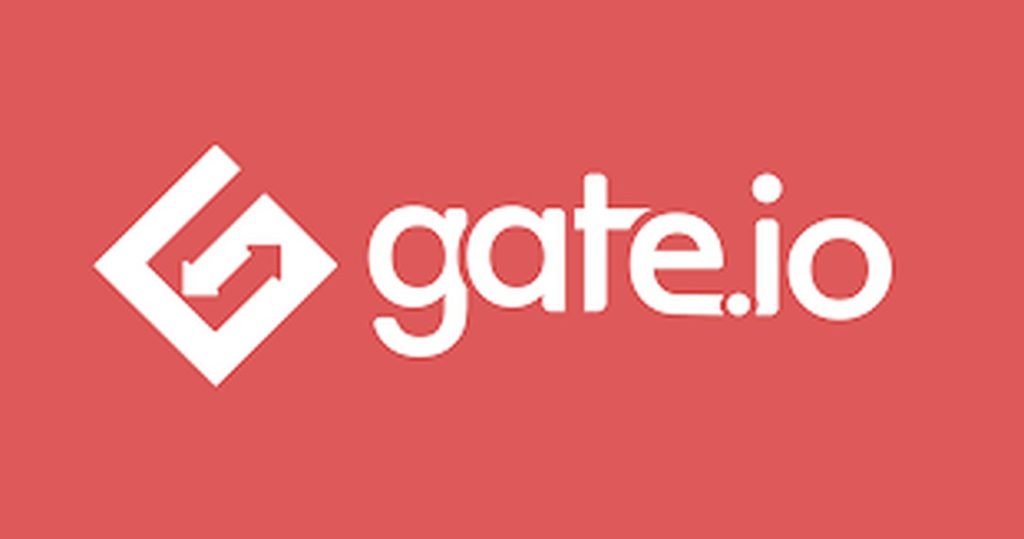Since opening its doors in 2014, E11EVEN Miami has become the world’s hottest nightclub and the ultimate playground for the stars. Every weekend is a “who’s who” of celebrities, music industry legends, world-renowned DJs, and entertainment moguls. In 2019, the landmark destination established itself as the highest-grossing nightclub per square foot globally, further cementing its presence as one of the most sought-after clubs in the world.
E11EVEN evolved from nightlife into lifestyle with the launch of E11EVEN Hotel & Residences, E11EVEN Vodka, E11EVEN Life apparel, and a major restaurant to be announced later this year.
The E11EVEN name is already well known in the crypto world. In April 2021, E11EVEN Miami became the first major nightclub in the United States to accept cryptocurrency and has since processed over $5 Million in transactions.
In June 2021, E11EVEN Hotel & Residences became the first IRL real estate in the world to accept APE and other cryptocurrencies as payment. In December 2021, E11EVEN got into the NFT space when they purchased Bored Ape #11… and now – in another first – they are disrupting and reimagining the entertainment landscape with the creation of E11EVEN Crypto and their inaugural offering: the 11 Captain’s Club NFT genesis collection.
E11EVEN has partnered up with Horizen Labs (APE) and several of the biggest names in the industry to create an exclusive NFT collection which drops on May 25.
The 11 Captain’s Club is unique because it is a utility-filled token-gated passport to the entire E11EVEN ecosystem with real-world benefits: IRL meets URL. The genesis collection is an exclusive series of 1,111 NFTs on the Ethereum blockchain, featuring artwork inspired by E11EVEN’s coveted hats, for 3 ETH each.
In addition to Web3 utility, the concentrated collection focuses on the importance and exclusivity that comes with being a Captain and its IRL utilities including first-access to all E11EVEN NFT projects and partnerships, priority pass to exclusive IRL events across the entire E11EVEN ecosystem, Captains-Only events, access to member-only areas of the Discord, and limited-edition product releases including E11EVEN apparel, vodka and more. Additional utilities are already underway.
With the support of major web3 influencers, developers, celebrities, and business leaders, E11EVEN Crypto is eager to explore its broader digital future into the next decade.
Get your spot on the 11 Captain’s Club Allow-list with this secret link for an opportunity to mint on May 24 before the public sale on May 25.
Geneva, Switzerland, May 13 – TRON DAO and BitTorrent Chain (BTTC) are gearing up for Season 2 of the TRON Grand Hackathon 2022, with registration beginning Monday, May 16.
The Hackathon is part of TRON DAO’s long-term efforts to promote the mass adoption of blockchain technology and innovative cross-chain solutions. The Hackathon’s primary goal is to empower developers to create and execute DeFi, GameFi, NFT, and Web3 projects and build a robust content and entertainment community on TRON and other blockchain platforms.
With an aggregate bounty of $1 million, the Hackathon will be split into four tracks, encompassing DeFi, GameFi, NFT, and Web3. This will be an ongoing funding event, commencing every three months, to promote the growth of the TRON and BTTC ecosystems.
There will be a permanent review panel throughout the Hackathon and a special guest panel for each season. Eligible submissions will be evaluated between August 1 to 11, 2022, and winners will be announced on August 17, 2022. Season 2 of the Hackathon will feature a stellar panel of judges from some of crypto’s most prestigious institutions and projects coming together to offer their expertise and accelerate the growth of the TRON DAO ecosystem.
The first stage of evaluation determines whether the concepts meet a baseline level of viability, such as reasonably fitting the topic and implementing the necessary APIs/SDKs advertised during the Hackathon.
The judges will evaluate all submissions that pass the first stage in stage two based on the following equally weighted criteria:
- Technological Implementation: Does the project demonstrate quality software development?
- Design: Is the user experience and design of the project well thought out?
- Potential Impact: How big of an impact could the project have on the category’s target audience?
- Quality of the Idea: How creative and unique is the project?
The scores from the judges will select the potential winners of the applicable prizes. The applicants eligible for a prize and whose submissions earn the highest overall scores based on the applicable judging criteria will become potential winners of that prize. The TRON DAO Forum prizes will be awarded based on community votes on the Hackathon projects submitted on the TRON DAO Forum.
The TRON Grand Hackathon 2022 and the TRON DAO Forum are all about possibilities, interactions, and empowering the TRON DAO community to have a say in the digital world. The decentralized web is all about putting the power in the hands of the people.
As a bonus, APENFT Marketplace will be partnering with the NFT track winners to provide resources and a platform to help them achieve their Hackathon goals while bringing much-needed visibility to up-and-coming NFT projects within the TRON and BTTC ecosystems.
The Hackathon will also support the top track winners with various resources, including potential funding opportunities from the TRON and BTTC Ecosystem Fund, liquidity, and integration with partner exchanges.
All blockchain developers, product managers, and designers are eligible to sign up for the contest. Contestants who finish developing a DeFi, GameFi, NFT, or Web3 project programmed in Solidity, which will work on TRON, or on Ethereum and BNB Chain through the BTTC bridge before the deadline, will be considered eligible participants. The contest is also open to any existing projects developed on the TRON or BTTC blockchain that have added significant updates or features during the Hackathon.
Submission of the Hackathon Season 2 begins on May 16, 2022, and ends on July 25, 2022. Contestants who are interested in winning extra TRON DAO Forum prizes are encouraged to register and submit their projects to the TRON DAO Forum early, as interactions with community members within their forum threads will also be considered while judging the projects.
How to Enter:
- Go to TRONDAO.org/hackathon.
- Register for the Hackathon on the Hackathon Website by clicking the “Join Hackathon” button. Sign up to create a free Devpost account or log in with an existing Devpost account to complete registration. This will enable you to receive important updates and to create your Submission.
- Applicants will complete a project described in Project Requirements. The applicant must follow the rules established in the license agreement when using any developer tools. The sponsor and Devpost have permission to collect and store an applicant’s personal information to operate and publicize the Hackathon.
- Create a video that includes footage that explains your project’s features and functionality through a comprehensive demonstration.
For eligibility, rules, criteria, and further details, please visit the TRON DAO Forum, TRON.Devpost.com/rules, and TRONDAO.org/hackathon.
About TRON DAO
TRON is dedicated to accelerating the decentralization of the internet via blockchain technology and decentralized applications (dApps). Founded in September 2017 by H.E. Justin Sun, the TRON network has continued to deliver impressive achievements since MainNet launch in May 2018.
July 2018 also marked the ecosystem integration of BitTorrent, a pioneer in decentralized Web3 services boasting over 100 million monthly active users. The TRON network has gained incredible traction in recent years. As of April 2022, it has over 92 million total user accounts on the blockchain, more than 3.1 billion total transactions, and over $8 billion in total value locked (TVL).
In addition, TRON hosts the largest circulating supply of USD Tether stablecoin across the globe, overtaking USDT on Ethereum since April 2021. The TRON network completed full decentralization in December 2021 and is now a community-governed DAO. Most recently, the algorithmic stablecoin USDD was launched on the TRON blockchain, backed by the first-ever crypto reserve for the blockchain industry – TRON DAO Reserve, marking TRON’s official entry into decentralized stablecoins.
Madrid, Spain, May 12, 2022 — Borderless Capital has increased its investment in Spanish fintech company Bnext to $10 million with a recent $4.5-million investment.
What this means for Bnext
The latest investment will help further Bnext’s goal to continue introducing bleeding-edge financial technologies in 2022 and beyond. Borderless Capital will provide financial support and offer invaluable expertise in the Algorand blockchain ecosystem to help Bnext accelerate the development of its numerous financial products and drive the adoption of decentralized finance technology on a global scale.
Algorand and Bnext
The Algorand blockchain offers several technological benefits, including faster transaction-speed efficiency, lower fees, no mining requirements and a permissionless pure proof-of-stake consensus mechanism, to name a few. Bnext has already leveraged Algorand to power its wallet app and is developing more use cases for the future.
Private IDO for the Algorand community
To show support for the Algorand community, Bnext will be reappropriating 350 million Bnext Token (B3X) for a private IDO — initial decentralized exchange (DEX) offering — launching soon on a leading Algorand DEX. These tokens represent all that remains from the second phase of B3X’s initial token sale.
In addition to the IDO allocation, all Algorand community members that participate and hold tokens on the DEX will have priority access to new functionalities and other benefits. Information on the IDO will be released on Bnext’s social media channels in the coming weeks.
Bnext public token sale raises more than $5.2M
Bnext partially closed its public token sale on March 31, successfully raising more than 5 million euros ($5.2 million). The token sale spanned two seven-day phases in March; phase one saw participants buy 360 million B3X utility tokens in the first few hours, and another 15 million were purchased in phase two. The remaining B3X tokens from phase two, after the expected IDO, will be burnt to increase liquidity.
The token sale has collectively raised 11 million euros ($11.43 million), with Bnext reserving the last remaining tokens for a private IDO for the Algorand community.
B3X Token utility
Bnext Token is a utility token underpinning the entire Bnext ecosystem. The platform’s mission is to bring financial freedom to a global community of banked and unbanked members through expanded access to a growing array of next-generation financial tools and remain committed to constantly improving the user experience.
The continued support from Borderless Capital will help Bnext strengthen its growing community and bring more value to users with international expansion. Upcoming products on the Bnext roadmap include a robust reward system, a diversified marketplace, its crypto wallet app with buying and selling conditions, international money transfers, user discounts and more.
To learn more about how more people are taking back full control of their finances, visit the Bnext website.
About Bnext
Bnext is one of the first Spanish fintech giants and a pioneer in offering an alternative to traditional banking. The company’s mission is to make it easier for people to control their money to live in a freer, simpler and more intelligent way.
A luxury spa and resort hotel in Limassol Parklane gathered the brightest and most influential minds in the crypto space for Blockchain Fest 2022 on May 4 and 5.
Parklane became a meeting point for the world’s most disruptive fintech trends, where the event gathered over 700 entrepreneurs, traders, investors, developers and industry enthusiasts.
There were six panels, numerous on-site interviews, an expert conference program and transformational workshops exploring the transforming role of blockchain, GameFi, NFT and more. Renowned speakers from blockchain and digital asset companies shared their stories and insights on the market and its prospects.
The honor of being the most debated topic belonged to NFTs and GameFi. A discussion of brands in the Metaverse and greater customer experience through the NFT minting platform Block.co were headed by its CEO Alexis Nicolaou and chief operating officer George Agathangelou, capturing most of the attention at the conference. The NFT and GameFi theme was extended by iLogos founder and chairman Alexander Goldybin, and practical approaches to investing, with emphasis on DeFi and market-neutral (non-speculative) strategies, were exhaustively examined by DCM Group director Alexander Douedari. VeChain Tech’s ecosystem manager Dimitris Neocleous discussed NFTs beyond the hype, while crypto entrepreneur Eloisa Marchesoni added a fresh perspective on NFTs and gamification as the future of community engagement within Web3.
Advisory and head of financial regulation at law firm AGP, Mihaela Grigoriou, provided a speech to the Blockchain Fest about the regulation of DeFi and CeFi, while European Digital Assets Exchange CEO Mauro Andriotto shared state-of-the-art security token legislation.
The culmination of the event started on the second day between 12:20 pm and 1:00 pm with the panel discussion “Banking in 2022: Banks vs. Crypto.” University of Nicosia’s institutional partnerships manager Nick Assimentos, Bank of Cyprus director of the group compliance division Marios Skandalis and Invest Cyprus deputy director general and head of the HQ unit Marios Tannousis discussed patterns of crypto’s evolution process, coming to the conclusion that while banks are not against crypto, their hands are tied by external regulations.
A new addition to the program was brought by founder and CEO of Christiana Aristidou LLC, Christiana Aristidou, introducing the topic of how tokens are transforming real estate in Cyprus.
Blockchain Fest 2022 strengthened its reputation as the preeminent crypto event in Cyprus by bringing industry trends and cutting-edge news.
The event serves as a pivotal point for the convergence of modern finance, fintech, blockchain and digital assets, ushering in a new era of business and economic growth at the European financial hub for all crypto lovers.
For more information and latest updates, follow the event’s social media:
Facebook | LinkedIn | Telegram | Twitter
Blockchain Fest 2022 was produced by Finexpo, organizer of financial conferences, forums, summits, exhibitions, shows, festivals, fairs and awards since 2002, with a community of over 100,000 crypto and finance participants.
Disclaimer: This is a press release; the Crypto Intelligence editorial team was not involved in its preparation, and we do not necessarily endorse the project(s) mentioned above.
El Salvador has bought the latest Bitcoin price dip, with the Latin American country purchasing another 300 BTC following the world’s largest cryptocurrency falling to $30,000 on Tuesday.
President Nayib Bukele is determined to build up the country’s crypto reserves, despite criticism from the intentional community.
Most recently, following the drop in the price of Bitcoin, he has added 500 more BTCs to the country’s balance sheet.
Bukele has been taking every opportunity to add Bitcoin to his country’s reserves ever since El Salvador adopted the crypto. However, the latest purchase is the largest in terms of the number of tokens bought by the country.
READ: Origyn partners with WatchBox for pre-owned luxury timepiece project
President Bukele has pegged his presidential achievements to Bitcoin ever since leading the charge of BTC legalization in his country last year.
The government of El Salvador bought 500 BTCs at around $30,744 each, bringing the total Bitcoin reserve of the country up to 2,301. This is worth just under $72 million at the current BTC/USD rate.
The International Monetary Fund (IMF) have long urged the country’s government to reverse its Bitcoin law and renege on the legalization of the crypto. However, for the time being, El Salvador is continuing to be extremely pro-crypto and its president looks set to continue to double down on Bitcoin.
Slippage, gas fees and complex conversion processes are common challenges faced by crypto asset managers. However, the long-anticipated integration between Flurry Finance and KyberSwap, first announced in August 2021, will help to conquer these challenges.
Today, the integration is finally complete; the Flurry Finance decentralized application (DApp) accepts all deposit tokens, with its token conversion handled via KyberSwap’s Dynamic Market Maker (DMM).
“We believe this collaboration can benefit everyone — KyberSwap, ourselves, users and the DeFi community on the whole,” CEO of Flurry Finance, Mike Ting shares. Ting notes that the benefits are made possible because of the complementary goals and strengths that both parties bring to the table.
Understanding the strengths of each protocol
Flurry Finance stands out in the decentralized finance (DeFi) sphere for its use of RhoTokens (cross-chain stable tokens designed to earn interest for holders through continuous yield farming) that are pegged to underlying stablecoins such as USDT at a 1:1 ratio. Flurry Finance automatically farms for yield across different DeFi protocols, so users earn passive income via its protocol just by HODLing rhoUSDT, rhoUSDC and rhoBUSD.
The concept is based on usability and simplicity with user experience being the top priority, so there is no need to lock up funds or pay high gas fees.
KyberSwap’s distinct advantage, on the other hand, comes from how it connects liquidity from various sources to ensure the best token rates for DApps, aggregators, DeFi platforms and more.
This allows KyberSwap to offer amplified pools with extremely high capital efficiency, which in turn creates lower trade slippage. Through its latest liquidity protocol, KyberSwap’s DMM is able to ensure the best rates for traders and optimize returns for liquidity providers.
Complementary goals make for a win-win situation
For Flurry Finance, tapping into the strength of KyberSwap leverages the user experience for RhoToken users, who can now enjoy the best exchange rates for any deposited tokens. In turn, this elevates its stable RhoTokens as a medium of exchange for everyday transactions.
As for KyberSwap, whose goal is to deliver high liquidity at low transaction costs, integration with Flurry Finance means an additional stream of stablecoins from $FLURRY HODLers, which will help attract more liquidity and further reduce slippage.
Nevertheless, the biggest winners are the users, who can now leverage these added benefits to simplify crypto asset management.
How it worked in the past
To take advantage of RhoTokens, users must first mint them. However, in order to obtain rhoUSDT, rhoUSDC or rhoBUSC during the pre-integration phase, users would need to hold on to the corresponding stablecoin. Essentially, in order to mint rhoUSDT, one must either possess USDT or undergo the process of token conversion.
The difficulty with token conversion was that not all deposit tokens could be used on the Flurry Finance DApp — only Venus, Alpaca and Rabbit were accepted. Luckily, this is no longer a problem due to the integration.
Powering the DeFi community in the present
Thanks to the rapidly advancing tech of Flurry Finance, users can now easily convert between stablecoins like USDC, USDT and BUSC via KyberSwap, eliminating the need to already possess a stablecoin in order to mint its corresponding RhoToken.
In fact, users can deposit any tokens in the Flurry Finance protocol and easily convert existing crypto assets into RhoTokens and vice-versa through KyberSwap’s DMM. The process is therefore simplified, more accessible and far more flexible — allowing the advantages of RhoTokens to be shared with the wider DeFi market.
Because KyberSwap’s DMM aggregates liquidity from multiple decentralized exchanges and identifies the best trade route possible, users can also rest assured that gas fee slippage is minimized and contained within an acceptable range.
“KyberSwap and Flurry Finance share the commitment to making DeFi accessible and easy for new and existing users. We have a clear synergy and look forward to a long term collaboration.” CEO of Kyber Network, Victor Tran, highlighted.
“At Flurry Finance, we are committed to allowing users to enjoy the passive income growth of crypto assets with RhoTokens in a simple, accessible and user-friendly way,” Ting reiterates.
“Together with Kyber, we believe we can amplify the Flurry Finance dApp user experience, revolutionize the use of RhoTokens, and in turn, open the gateway to a world where there is DeFi for all,” Ting concludes.
About Kyber Network
Kyber Network is building a world where any token is usable anywhere. KyberSwap.com, our flagship decentralized exchange (DEX), provides the best rates for traders in DeFi and maximizes returns for liquidity providers.
KyberSwap powers over 100 integrated projects and has facilitated over $7B worth of transactions for thousands of users since its inception. Currently deployed across 11 chains including Ethereum, BNB Chain, Polygon, Avalanche, Fantom, Cronos, Arbitrum, Velas, Aurora, Oasis and BitTorrent.
Website | Telegram | Twitter | Medium | Discord
About Flurry Finance
Flurry Finance was launched to make the DeFi user experience as convenient as possible and improve the usability of DeFi products. Flurry Finance issues RhoTokens, which are cross-chain interoperable, stable, flexible and generate profits for users, that are pegged at a 1:1 ratio to its underlying stablecoin. The Flurry Finance protocol is designed to monitor conditions across chains and present optimal fee-adjusted returns for users, automating the tedious task of switching in and out of DeFi products on different chains.
Website | Telegram | Telegram News | Twitter | Medium | Discord
Disclaimer: This is a press release; the Crypto Intelligence editorial team was not involved in its preparation, and we do not necessarily endorse the project(s) mentioned above.
FNDZ.io, the decentralized social trading platform, is set to release its industry-first platform staking feature in May 2022.
FNDZ Staking is a mechanism that will give holders of FNDZ‘s native token, FNDZ, the opportunity to earn a portion of fee-based revenues generated by the copy trading platform. The FNDZ Staking contract is unique to decentralized finance (DeFi) platforms and rewards $FNDZ token holders in multiple tokens, allowing participants to earn large and small-cap tokens at the same time.
Introduction to FNDZ
Over the past year, FNDZ has emerged as one of the top copy trading platforms on the entire Binance Smart Chain ecosystem. Copy trading is essentially a trading method wherein individuals automatically copy the positions opened and managed by other selected traders.
FNDZ intends to be the bridge between beginners and experienced traders. The platform allows crypto-newcomers to copy the trading strategies of seasoned traders in return for a fee. FNDZ uses a combination of smart contracts and DeFi technology to make copy trading much more transparent, with all fees and results visible to investors at all times. With this, FNDZ aspires to accomplish two things; improve the profit margin of novice investors, and reward skillful traders by monetizing their trading advice.
The FNDZ platform is non-custodial, giving users full control over their private keys and personal assets. Investors deposit stablecoins into a smart contract vault, which allows traders to open and close positions on their behalf, without ever having direct access to their assets.
The platform has over 30 assets available for trading, including some of the top launches of 2021, such as Solar (SXP).
The addition of FNDZ Staking will add another utility feature to FNDZ, along with providing additional cost-free value for its holders, through a mechanism not available on any other copy trading platform.
What is FNDZ Staking?
FNDZ Staking is one of FNDZ’s initial flagship value propositions. It allows FNDZ holders who stake their tokens through the FNDZ staking dashboard to receive multiple project tokens from fee-based trading revenue.
This is in addition to receiving FNDZ staking rewards and access to a greater share of performance-fee revenues for traders.
Through its asset program, FNDZ provides blockchain startups with valuable listing services and access to a large pool of potential investors.
In exchange for its services, FNDZ receives a number of tokens from these projects. With the launch of FNDZ Staking, FNDZ will distribute a portion of these tokens to the FNDZ holders participating in its staking program.
How does FNDZ Staking work?
Starting in early May, users will be able to place their FNDZ tokens into a staking contract with weighted rewards. This means the amount of FNDZ staked is measured as a share of the total staking pool, with a larger input equalling a bigger return.
What makes FNDZ Staking special is that rewards are generated from the returns of cryptocurrency vaults, and therefore the performance of experienced traders. The performance of FNDZ vaults is measured in a variety of altcoins. When the performance fee is collected, the altcoins are sent directly to the staking contract and paid out as rewards. Participants can stake their $FNDZ tokens and passively earn a diverse set of altcoins, in addition to regular FNDZ token rewards.
FNDZ will also introduce additional crypto indexes, providing algorithmic trading services to investors.
What’s an Index vault?
Indexes are computer-based trading systems that are programmed to do certain tasks with little or no human intervention. In the world of cryptocurrency trading, crypto indexes automate the work of trading cryptocurrencies on behalf of the investor. They are used to rebalance portfolios as asset prices change and to amplify trading profits.
FNDZ has developed a unique index trading system that uses artificial intelligence to execute buy and sell orders based on market cap weighting.
Each index vault has a particular theme or focus: top 10 DeFi-coins, top 5 altcoins, and top altcoins in a given market segment, for example.
With the addition of Index vaults, FNDZ now offers a comprehensive suite of trading services to meet the diverse needs of the DeFi trading community.
To participate and take advantage of FNDZ’s new staking opportunity, please refer to the following links:
FNDZ on PancakeSwap.
FNDZ on AscendEX.
Find more about FNDZ.
About FNDZ
The FNDZ’s motto is “DeFi copy trading made simple.” The FNDZ platform is a DeFi copy trading solution that enables copy/social trading from a truly decentralized perspective. DeFi, short for decentralized finance, is a financial infrastructure consisting of blockchain-powered smart contracts and protocols which collectively carry out the same functions traditionally handled by brokers, bankers, and financiers. FNDZ uses these tools to provide a fully transparent, low-cost, highly efficient, and user-friendly copy trading experience.
Disclaimer: This is a press release; the Crypto Intelligence editorial team was not involved in its preparation, and we do not necessarily endorse the project(s) mentioned above.
Origyn, the Swiss foundation dedicated to identifying, authenticating and unlocking the powers of ownership for objects of value, has announced a partnership with WatchBox, the global leader in collectible luxury timepieces.
Origyn and WatchBox will collaborate to produce utility nonfungible tokens for the ownership of luxury watches to become digitally tradable, unlocking secondary market liquidity. Buyers with NFTs can fully trust in the watch’s authenticity and trade its digital ownership, making secondary market trading faster and safer for all parties. The NFTs also solve the issue of counterfeit watches by acting as blockchain-based certificates of authenticity purchases on WatchBox’s platform.
Daniel Haudenschild, CEO of Origyn, said, “Once an object has a guaranteed certificate, the NFT becomes highly tradable. Pushed by consumer trends such as reuse and upcycling, the secondary market in luxury watches has exploded and is expected to reach $29 to $32 billion by 2025. Authentication NFTs will make secondary market trading faster and safer for buyers and sellers alike. WatchBox is a leader in collectible watches that are guaranteed to be authentic and collector quality, and we are pleased to work with them to provide a digital guarantee of their services.”
Origyn’s NFTs will provide consumers with guaranteed digital certificates of authenticity for luxury watches purchased on WatchBox’s platform and access to services such as insurance, digital provenance, concierge service and access to exclusive communities. The NFTs will be rolled out this summer.
“Discerning collectors have long trusted WatchBox to purchase authentic, collectible watches, and our partnership with Origyn will extend this proof of authenticity to the blockchain,” said Justin Reis, CEO of WatchBox. “We are excited to provide our clients and community with access to a Web3 authenticity certificate, exclusive blockchain-native content and services and the ability to digitally trade watches through our partnership with Origyn.”
Origyn is the largest project on the Internet Computer Protocol (ICP) developed by The DFinity Foundation, one of the fastest-growing blockchains globally. Origyn uses computer vision, machine learning and decentralized technology to certify authenticated objects. Its computer vision and artificial intelligence can pick up details the human eye can’t see, and each watch is given a unique biometric fingerprint from this process. Once this unique biometric fingerprint has been created, an NFT containing all of this information is minted.
The partnership will solve the problem of genuine luxury goods being swapped with counterfeits by constantly controlling the authenticity during its overall lifespan. The Swiss watch industry alone loses $2 billion annually to counterfeits, and more than 40 million counterfeit luxury watches are produced and sold annually. More than 37% of luxury end-consumers in France have bought a counterfeit product without knowing it. This issue can cause uncertainty in the second-hand market, with many would-be buyers fearful of being duped. This leads to an illiquid market in addition to diminishing consumer loyalty and brand equity.
Since its 2017 founding, WatchBox has been a trusted destination for watches with guaranteed authenticity and will be a trusted node in the Origyn network. Watches certified as authentic by WatchBox will be issued a digital certificate on the Origyn platform that can be validated through the biometrics of the watch itself, using advanced computer imaging and artificial intelligence.
The global leader in collectible watches, WatchBox has generated more than $1 billion in revenue and raised $260 million from investors, including Michael Jordan, Milwaukee Bucks MVP Giannis Antetokounmpo, Milwaukee Bucks owner Marc Lasry, Phoenix Suns stars Chris Paul and Devin Booker, Bill Ackman and more.
Origyn recently raised $20 million and is backed by Table Management, Polychain Capital, Bali Venture Partners, Vectr Ventures, Carter Reum, Divyank Turakhia, Paris Hilton and more. The foundation’s utility token, OGY, is set to become publicly tradable in the second quarter of 2022.
About Origyn
The Swiss nonprofit foundation ORIGYN uses intelligent technology, including computer vision and artificial intelligence, on decentralized computing infrastructure to identify, authenticate and unlock the powers of ownership for objects of value. As the first digital certification platform built on ICP, Origyn and its verticals generate new forms of value for some of the largest consumer asset classes worldwide, including art, collectibles, digital media and luxury goods. Founded in Neuchâtel, Switzerland, in October of 2020, Origyn operates globally in major technology and blockchain hubs worldwide. For more information, visit origyn.ch.
About WatchBox
WatchBox is the world’s leading platform for collectible luxury timepieces, founded in 2017 by Justin Reis, Tay Liam Wee and Danny Govberg. Offering the largest collection of pristine condition luxury watches, authenticated, and backed by a global warranty, WatchBox is the watch collector’s ultimate destination. Members of the WatchBox collector community receive white-glove concierge service online or at any of its global locations in the United States, Hong Kong, Singapore, Switzerland and Dubai, with additional locations on the way. As a technology-first platform and pioneer in media-driven commerce, WatchBox produces and distributes original video content daily, with a growing library that includes market insights, collector interviews and thousands of watch reviews.
Learn more at thewatchbox.com.
Disclaimer: This is a press release; the Crypto Intelligence editorial team was not involved in its preparation, and we do not necessarily endorse the project(s) mentioned above.
Gate.io, one of the oldest cryptocurrency exchanges in the world, has become the second-largest crypto exchange by trading volume according to data from CoinGecko, securing its spot as one of the leading exchanges worldwide.
Founded in 2013, Gate.io offers a wide range of products, including Startup, which allows users to invest in projects early on; NFT Magic Box, which allows the creation and trading of nonfungible tokens (NFTs); GateChain, its native blockchain ecosystem and Gate Ventures, its venture capital-investment division.
Gate.io’s wide range of products and services has led to a rise in the platform’s popularity, with the platform surpassing 10 million users in early 2022.
“This is another remarkable milestone for us at Gate.io as we approach our ninth birthday. Our unwavering commitment to providing our users with a safe and secure platform, with a comprehensive suite of products and services, remains the key to our exponential growth over the last couple of years, and we have no plans on slowing down,” said Marie Tatibouet, chief marketing officer of Gate.io.
The company offers more than 1,400 tradable cryptocurrencies on its spot market and has seen its daily trading volume surpass $3 billion. Gate.io prides itself on having the widest variety of tradable assets of any leading exchange.
About Gate.io
Established in 2013, Gate.io is one of the oldest leading cryptocurrency exchanges. It offers many leading digital assets and has more than 10 million registered users worldwide. It is consistently ranked as one of the top-10 cryptocurrency exchanges in liquidity and trading volume on CoinGecko and has been verified by the Blockchain Transparency Institute (BTI). Additionally, Gate.io has been given a rating of 4.5 by Forbes Advisor, making it one of the Best Crypto Exchanges in 2021. Besides the main exchange, Gate.io also offers other services such as decentralized finance, research and analytics, venture capital investments, wallet services and more.
As a disclaimer, Gate.io may not provide its full scale of services in certain markets and jurisdictions and may restrict or prohibit the use of all or a portion of the services in compliance with local regulations. For the latest list of all the restricted locations, please read the user agreement Section II Eligibility at gate.io/docs/agreement.pdf.
Disclaimer: This is a press release; the Crypto Intelligence editorial team was not involved in its preparation, and we do not necessarily endorse the project(s) mentioned above.

